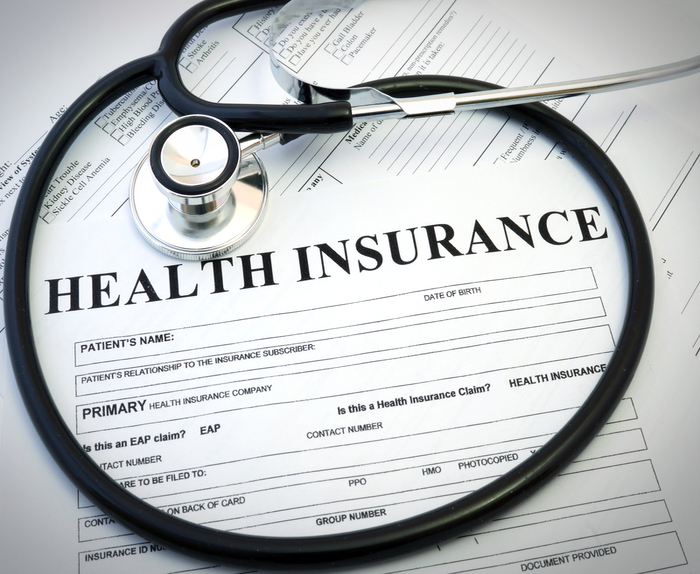- Calls to this hotline are currently being directed to Within Health, Fay or Eating Disorder Solutions
- Representatives are standing by 24/7 to help answer your questions
- All calls are confidential and HIPAA compliant
- There is no obligation or cost to call
- Eating Disorder Hope does not receive any commissions or fees dependent upon which provider you select
- Additional treatment providers are located on our directory or samhsa.gov
Humana Eating Disorder Coverage
Eating disorders are complex and serious mental health conditions that affect millions of people worldwide. Studies have indicated that 0.3-0.4% of the population will experience an eating disorder at some point in their life. [1]
Still, as serious as these conditions are, an eating disorder treatment program can be prohibitively expensive. That’s why, when seeking treatment, one of the main factors for patients to consider is insurance coverage.
If you have Humana health insurance, it may be possible to have some of your eating disorder treatment covered, specifically through the company’s behavioral health services. But like all things involved with health care, every case is different, and depends on a number of details.
Does Humana Cover Eating Disorder Treatment?
In a word: Yes. But the degree to which Humana will cover treatment depends on a number of factors.
Humana is one of the largest health insurance companies in the United States, covering the health expenses for millions of Americans. And this frequently includes options for eating disorder recovery, particularly for outpatient treatment.
If Humana is your insurance provider, and you’re seeking eating disorder treatment through the company, your specific coverage options will vary. There are several key considerations to keep in mind when determining the type of eating disorder treatment that may be available to you through Humana.

Mental Health Parity and Addiction Equity Act (MHPAEA)
As per the MHPAEA’s federal regulations, insurance providers like Humana must cover mental health services, including eating disorder treatments, so long as they cover medical and surgical services. [6]
This means that individuals with Humana insurance plans are likely to have access to at least some form of coverage for the treatment of their eating disorders.
Individual Plan Details
Every person’s insurance plan with Humana will differ, depending on factors like their location, employer-sponsored coverage, and individual or family plans.
It’s crucial to read the fine print on your specific plan to ascertain the extent of coverage provided for eating disorder treatments. You may also want to contact a Humana representative to ask any additional questions you may have.
In-Network vs. Out-of-Network Providers
Typically, insurance providers offer the highest level of coverage for in-network services, or with one of the doctors or treatment centers with which they partner.
This generally means finding a treatment facility or medical professional within this network is essential in maximizing benefits.
It may be possible to also have an out-of-network facility covered, though this will be a more complicated process, and coverage is not guaranteed. You’ll have to discuss the situation with the center, Humana, and your primary care physician to iron out details.
Preauthorization
Before beginning any form of treatment, Humana may require preauthorization for services related to eating disorder treatments. This often means fulfilling certain obligations the company has for eating disorder coverage, such as getting an official eating disorder diagnosis. (Some insurance companies require that this diagnosis is also prescribed by an in-network doctor. Make sure to read your specific plan for more details.)
How to Get Eating Disorder Treatment Through Humana
In nearly all cases, you’ll need to be officially diagnosed with an eating disorder in order to be eligible for coverage. This generally happens through a comprehensive medical evaluation, where a doctor will assess your physical and psychological health, as well as your nutritional needs.
Once you’ve been diagnosed and cleared for treatment, the doctor can use this evaluation to come up with a personalized treatment plan. Typically consisting of a combination of medical care, nutritional counseling, and therapy, this plan can then be presented to Humana in order to give the company an idea of the type of treatment deemed medically necessary for your recovery.
Depending on their policies and your specific plan, Humana may approve all, or some, of the therapies recommended in this plan. This can be the trickiest part of the process, requiring much coordination between your health insurance provider, primary care physician, and any eating disorder treatment centers you may be working with.
Sometimes, either insurance companies or treatment programs offer case managers who can help you mitigate this difficult aspect of securing coverage.
Types of Eating Disorder Treatment Available Through Humana
Humana, like most other insurance companies, will only cover certain types of treatment for eating disorders. Generally, this consists of treatment deemed both medically necessary and clinically effective. Evidence-based treatment is often the gold standard for care that will be approved.
There are a number of therapeutic approaches that can be used to help with eating disorders of all types, which are generally considered effective in this way, including:
- Cognitive behavioral therapy (CBT)
- Dialectical behavior therapy (DBT)
- Family-based therapy (FBT)
Humana may also cover medication prescribed to help with eating disorder treatment, nutritional counseling, or other types of therapy.
Still, it’s important to note that details will, once again, come into play. The company may require that patients try outpatient treatment before they provide coverage for more intensive forms of care. And if you’re approved for a residential treatment program, your coverage may only cover a portion of the cost, or dwindle over time.
It’s important to iron out these details with a Humana representative, or an employee from the treatment center of your choice.
Spotting an Eating Disorder
Eating disorders are complex mental illnesses that manifest in various forms, negatively impacting one’s overall quality of life.
There are many forms of eating disorders, but the three most common ones are:
- Anorexia nervosa (AN)
- Bulimia nervosa (BN)
- Binge eating disorder (BED)
These conditions can have life-threatening consequences if not treated properly. [2] And they often require comprehensive and ongoing care from experienced medical professionals.
Symptoms of Anorexia Nervosa
Anorexia nervosa is a serious health condition characterized by weight loss due to a fear of gaining weight. Symptoms vary from person to person, but some of the most prominent include: [3]
- Withdrawing from eating
- Weight loss
- Little to no willingness to eat
- Feelings of depression
- Digestive pain or constipation
- Dehydration
- Dry skin
- Sensation of feeling cold
- Distorted body image
Symptoms of Bulimia Nervosa
Bulimia nervosa is a serious health condition consisting of a series of binging and compensatory behaviors to avoid weight gain.
People who suffer from bulimia nervosa tend to experience: [4]
- Frequent, self-induced vomiting following a meal
- Overuse or abuse of laxatives
- Maintaining an excessive exercise routine, regardless of injury, illness, or fatigue
- Displays an extreme concern with body image and shape
- Depression and/or anxiety
- Suicidal thoughts or feelings
- Discomfort in situations that involve eating food around other people
- Loneliness or withdrawal from friends and family
Symptoms of Binge Eating Disorder
Binge eating disorder is a severe health condition characterized by eating large amounts of food within a small period of time, often followed by feelings of shame and physical discomfort.
Some key symptoms to look out for include: [5]
- Eating a significantly large amount of food within a short period of time
- Feeling a lack of control while eating; an inability to stop eating.
- Eating extremely fast.
- Eating until feeling sick or physically uncomfortable.
- Eating large amounts of food even when not hungry.
- Eating alone due to embarrassment about how much food is being eaten.
- Feeling guilty and disgusted after eating.

Finding Help for an Eating Disorder
Eating disorders are dangerous and potentially even deadly conditions, so it’s crucial to find care regardless of health insurance concerns.
If you need additional help finding the right kind of treatment or program, you may want to speak with your primary care physician, therapist, or other trusted medical professionals. These experts are frequently versed in all types of eating disorders, and may be able to help you receive an official diagnosis or find the right kind of program for your particular case.
If you’d rather not discuss the issue face-to-face with someone, a number of eating disorder hotlines may also be able to help. These services are generally free and allow callers to remain anonymous while receiving advice, information, and additional resources about eating disorders and eating disorder treatment.
Mental health disorders like bulimia nervosa, anorexia nervosa, and binge eating disorder can feel almost out of reach when it comes to recovery. But it is possible to overcome these unhelpful thoughts and behaviors. Reaching out for help is the first step which can lead you to the road to recovery.
Resources
- Keski-Rahkonen A, Hoek HW, Susser ES, Linna MS, Sihvola E, Raevuori A, Bulik CM, Kaprio J, & Rissanen A. (2007). Epidemiology and course of anorexia nervosa in the community. The American Journal of Psychiatry; 164(8):1259–1265.
- Smith AR, Zuromski KL, & Dodd DR. (2018). Eating disorders and suicidality: what we know, what we don’t know, and suggestions for future research. Current Opinion in Psychology; 22:63–67.
- Anorexia Nervosa. (n.d.). National Eating Disorders Association. Retrieved April 2023.
- Bulimia Nervosa. (n.d.). National Eating Disorders Association. Retrieved April 2023.
- Binge Eating Disorder. (n.d.). Mayo Clinic. Retrieved April 2023.
- The Mental Health Parity and Addiction Equity Act (MHPAEA). (n.d.). Centers for Medicare & Medicaid Services. Retrieved April 2023.
Published on September 28th, 2023 Published on EatingDisorderHope.com

